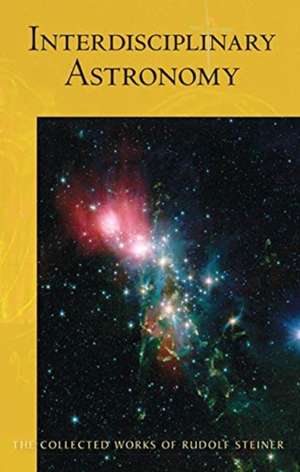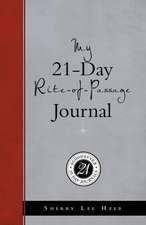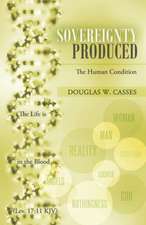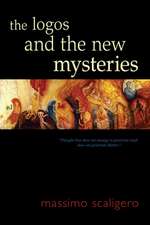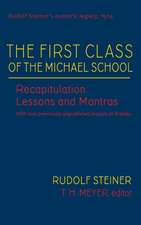Interdisciplinary Astronomy: Collected Works of Rudolf Steiner
Autor Rudolf Steiner Traducere de Frederick Amrineen Limba Engleză Paperback – 4 feb 2020
"So you see, the most important thing to me has been to call forth within you an experience of the harmony between the human constitution and the structure of the cosmos. If you've really been following thus far, you can't possibly regard this harmony as a sin against the spirit of science" (from lecture 16)
What is the relationship between the human being and the world of the stars? Can we comprehend the structure and movement of celestial bodies solely through advanced mathematics, or is there in reality a point beyond which mathematical functions no longer apply? Can we, in fact, transcend the limits of three-dimensional space through our thinking?
In eighteen lively lectures from the beginning of 1921, Rudolf Steiner dives deeply and courageously, though carefully, into these and other profound questions. His conclusions and indications for further research are at once fascinating, stimulating, and quite possibly revolutionary in their implications.
The subject of these lectures is not astronomy, broadly considered, but the relationship of astronomy to the other fields of natural science. As he does elsewhere, Steiner maintains that the rigid specialization so prevalent in scientific endeavors will not bring us any closer to an integrated, singularly comprehensible understanding of the reality of our world. In particular, a true grasp of the workings of the universe will not be possible until its mirror, the study of human embryology, is recognized as such and penetrated with this reflective relationship in mind.
Steiner once again shows himself to be both an utterly unique and masterful commentator on scientific and intellectual history, as well as a living light, shining a possible forward path for human progress and self-knowledge.
This volume is a translation from German of Das Verh ltnis der verschiedenen naturwissenschaftlichen Gebiete zur Astronomie: Dritter naturwissenschaftlicher Kurs: Himmelskunde in Beziehung zum Menschen und zur Menschenkunde (GA 323, 2nd ed.), Rudolf Steiner Verlag, Dornach, Switzerland, 1983.
Din seria Collected Works of Rudolf Steiner
-
 Preț: 154.46 lei
Preț: 154.46 lei -
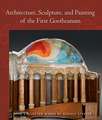 Preț: 277.41 lei
Preț: 277.41 lei -
 Preț: 136.35 lei
Preț: 136.35 lei -
 Preț: 258.76 lei
Preț: 258.76 lei -
 Preț: 260.45 lei
Preț: 260.45 lei -
 Preț: 151.75 lei
Preț: 151.75 lei -
 Preț: 213.21 lei
Preț: 213.21 lei -
 Preț: 108.47 lei
Preț: 108.47 lei -
 Preț: 136.86 lei
Preț: 136.86 lei -
 Preț: 115.84 lei
Preț: 115.84 lei -
 Preț: 136.49 lei
Preț: 136.49 lei -
 Preț: 135.09 lei
Preț: 135.09 lei -
 Preț: 108.26 lei
Preț: 108.26 lei -
 Preț: 110.47 lei
Preț: 110.47 lei -
 Preț: 101.01 lei
Preț: 101.01 lei -
 Preț: 143.00 lei
Preț: 143.00 lei -
 Preț: 258.66 lei
Preț: 258.66 lei -
 Preț: 101.17 lei
Preț: 101.17 lei -
 Preț: 151.68 lei
Preț: 151.68 lei -
 Preț: 121.95 lei
Preț: 121.95 lei -
 Preț: 115.58 lei
Preț: 115.58 lei -
 Preț: 257.55 lei
Preț: 257.55 lei -
 Preț: 152.25 lei
Preț: 152.25 lei -
 Preț: 152.00 lei
Preț: 152.00 lei -
 Preț: 136.86 lei
Preț: 136.86 lei -
 Preț: 224.10 lei
Preț: 224.10 lei -
 Preț: 225.17 lei
Preț: 225.17 lei -
 Preț: 259.91 lei
Preț: 259.91 lei -
 Preț: 217.78 lei
Preț: 217.78 lei -
 Preț: 184.77 lei
Preț: 184.77 lei -
 Preț: 194.89 lei
Preț: 194.89 lei -
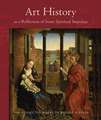 Preț: 280.29 lei
Preț: 280.29 lei -
 Preț: 135.88 lei
Preț: 135.88 lei -
 Preț: 153.89 lei
Preț: 153.89 lei -
 Preț: 152.86 lei
Preț: 152.86 lei -
 Preț: 135.32 lei
Preț: 135.32 lei -
 Preț: 145.05 lei
Preț: 145.05 lei -
 Preț: 151.47 lei
Preț: 151.47 lei -
 Preț: 258.37 lei
Preț: 258.37 lei -
 Preț: 152.25 lei
Preț: 152.25 lei -
 Preț: 115.98 lei
Preț: 115.98 lei -
 Preț: 100.76 lei
Preț: 100.76 lei -
 Preț: 216.88 lei
Preț: 216.88 lei -
 Preț: 226.35 lei
Preț: 226.35 lei -
 Preț: 151.47 lei
Preț: 151.47 lei -
 Preț: 154.81 lei
Preț: 154.81 lei -
 Preț: 217.05 lei
Preț: 217.05 lei - 5%
 Preț: 145.87 lei
Preț: 145.87 lei -
 Preț: 151.75 lei
Preț: 151.75 lei
Preț: 215.68 lei
Nou
Puncte Express: 324
Preț estimativ în valută:
41.28€ • 42.64$ • 34.35£
41.28€ • 42.64$ • 34.35£
Carte disponibilă
Livrare economică 04-18 martie
Livrare express 18-22 februarie pentru 30.90 lei
Preluare comenzi: 021 569.72.76
Specificații
ISBN-13: 9781621480709
ISBN-10: 1621480704
Pagini: 342
Ilustrații: Illustrations, unspecified
Dimensiuni: 150 x 234 x 28 mm
Greutate: 0.48 kg
Editura: Steiner Books
Seria Collected Works of Rudolf Steiner
ISBN-10: 1621480704
Pagini: 342
Ilustrații: Illustrations, unspecified
Dimensiuni: 150 x 234 x 28 mm
Greutate: 0.48 kg
Editura: Steiner Books
Seria Collected Works of Rudolf Steiner
Notă biografică
Rudolf Steiner (1861-1925) was born in the small village of Kraljevec, Austro-Hungarian Empire (now in Croatia), where he grew up. As a young man, he lived in Weimar and Berlin, where he became a well-published scientific, literary, and philosophical scholar, known especially for his work with Goethe's scientific writings. At the beginning of the twentieth century, he began to develop his early philosophical principles into an approach to systematic research into psychological and spiritual phenomena. Formally beginning his spiritual teaching career under the auspices of the Theosophical Society, Steiner came to use the term Anthroposophy (and spiritual science) for his philosophy, spiritual research, and findings. The influence of Steiner's multifaceted genius has led to innovative and holistic approaches in medicine, various therapies, philosophy, religious renewal, Waldorf education, education for special needs, threefold economics, biodynamic agriculture, Goethean science, architecture, and the arts of drama, speech, and eurythmy. In 1924, Rudolf Steiner founded the General Anthroposophical Society, which today has branches throughout the world. He died in Dornach, Switzerland.
